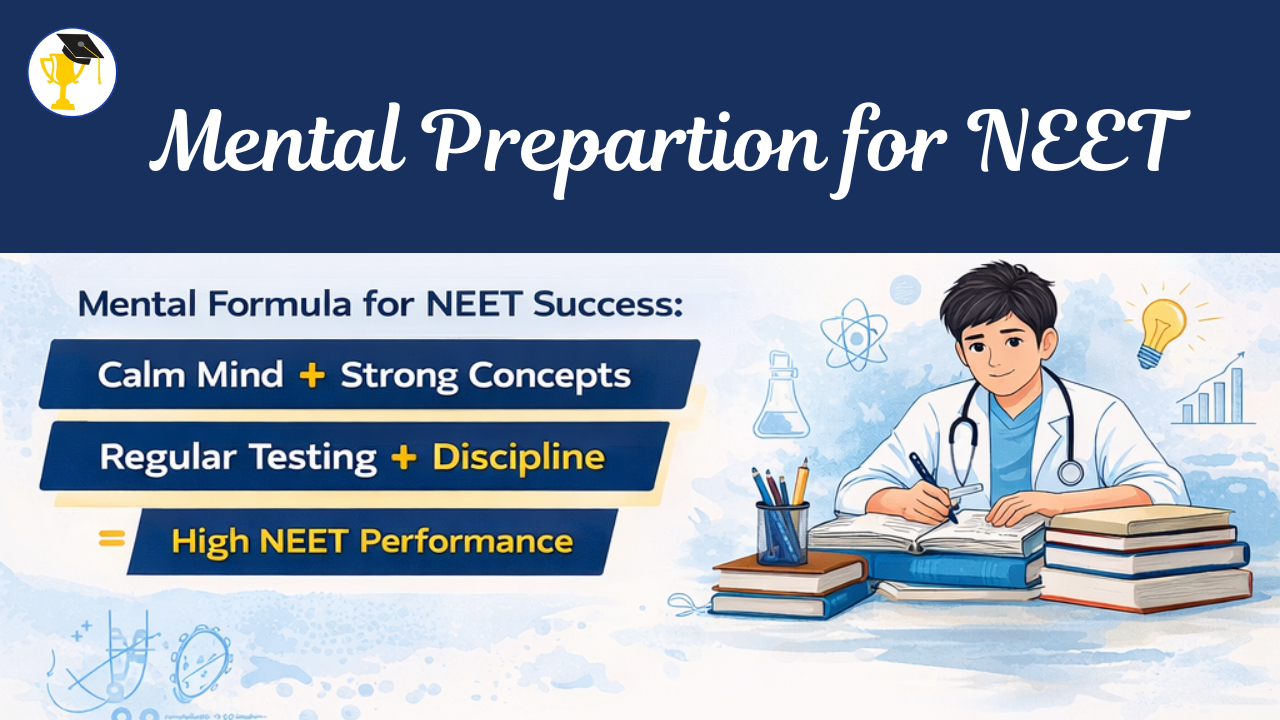Advantages of Short Notes for NEET 2025: A Deeper Look
Preparing for NEET 2025 demands a methodical approach, where every strategy counts, and short notes can be one of the most impactful tools in your study arsenal. Let’s break down how short notes can elevate your preparation:
1. Enhances Conceptual Clarity
Creating short notes encourages you to simplify complex topics. The process of breaking down dense content into concise points can significantly clarify challenging concepts. For subjects like Organic Chemistry and Genetics, where understanding pathways and relationships is key, short notes can help identify gaps in comprehension, solidifying your grasp on foundational principles.
2. Boosts Recall Speed
Quick recall is crucial in NEET, where you’ll need to retrieve information rapidly. Since short notes focus on the core points and are crafted in your own words, they foster faster recall. This can be a game-changer during the exam, as every second saved on retrieval can add up to more time for complex questions.
3. Supports Effective Topic Linking
NEET often tests interconnected knowledge across Biology, Chemistry, and Physics. Short notes allow you to draw connections, linking related concepts from different subjects. For instance, linking cellular processes in Biology with Chemistry concepts in molecular reactions deepens your interdisciplinary understanding, an edge when answering integrated questions.
4. Efficient Self-Assessment Tool
Short notes are an ideal quick-assessment resource. Before a self-test, skim through your notes. If you can thoroughly explain each concept based on the key points, it’s a good indication of mastery. Otherwise, revisit that area in depth to reinforce learning.
5. Improves Focus on Weak Areas
With short notes, you can quickly identify areas needing improvement. If you find Mechanics challenging in Physics, for example, create dedicated notes with extra examples and detailed explanations. This targeted focus ensures you’re strengthening weaker areas while avoiding redundancy.
________________________________________
Tips for Making and Using Short Notes Effectively for NEET 2025
1. Choose the Right Format
Different formats serve different purposes. Flashcards, mind maps, and one-page summaries each cater to specific needs:
• Physics: Flashcards for formulas and principles can help with quick recall.
• Biology: Mind maps work well for visualizing cycles and systems, such as the Krebs cycle.
• Chemistry: Summaries of reaction mechanisms or tables for quick reference are efficient for organic reactions and compounds.
2. Use Colors and Highlighting
Colors improve memory retention by making your notes more visually engaging. Use them to distinguish between topics, highlight essential concepts, or mark common mistakes. This enhances your review experience, making information easier to remember.
3. Maintain Conciseness
The goal of short notes is to stay succinct. Resist the temptation to include every detail. Use bullet points or keywords instead of lengthy explanations to keep your notes compact and easy to scan.
4. Incorporate Daily Revisions
Daily review keeps content fresh in your memory. A quick 15–20 minutes before bed or during a break can be enough to reinforce key points, making the information stick over time, especially as the exam approaches.
5. Collaborate and Compare with Peers
Discussing and sharing notes with peers can offer fresh insights or alternative perspectives on tricky topics. Peers may have unique mnemonics or diagrams that can enrich your notes, enhancing your overall understanding.
________________________________________
Short Notes for NEET 2025: Subject-Wise Tips
Biology
• Diagrams: Use labeled illustrations for cellular processes and physiological cycles. Visuals aid in retaining complex processes.
• Key Terms: Write concise definitions for terms, such as summarizing each phase of Mitosis in a line.
• Examples: Include common species, diseases, or phenomena frequently tested in NEET.
Physics
• Formulas and Derivations: Use flashcards for formulas, and include derivations only if they help with understanding.
• Key Concepts: Summarize laws, theorems, and any exceptions briefly.
• Practice Problems: Solve a few key problems per concept to apply what you've learned and add notes on tricky aspects.
Chemistry
• Organic Chemistry: Create flowcharts to visualize reaction mechanisms and the progression of reactions.
• Important Compounds: Keep a list of key compounds, their structures, and reactions for fast access.
• Physical Chemistry: Maintain a formula sheet and note down tips for solving typical problem types.
________________________________________
Common Mistakes to Avoid When Making Short Notes
• Copying Instead of Summarizing: Summarizing concepts in your own words strengthens comprehension. Avoid copying directly from textbooks.
• Making Notes Too Long: Conciseness is key. Long notes defeat the purpose; stay selective and focused on essentials.
• Neglecting Regular Revisions: Even the best notes are only as effective as your commitment to revisiting them.
• Focusing Only on Strong Areas: Don’t avoid weak areas—ensure your notes cover all aspects of the syllabus, with extra emphasis on tougher topics.
________________________________________
Wrapping Up: How Short Notes Can Power Your NEET 2025 Success
Short notes are a powerful way to streamline your NEET preparation. By consolidating content, enhancing recall, and facilitating regular revision, they help keep you organized and focused. Remember, consistency is essential—frequent reviews not only reinforce your understanding but also build confidence, ensuring you’re well-prepared for exam day.
 STUDY MATERIALS
STUDY MATERIALS
 COURSES
COURSES
 MORE
MORE






















